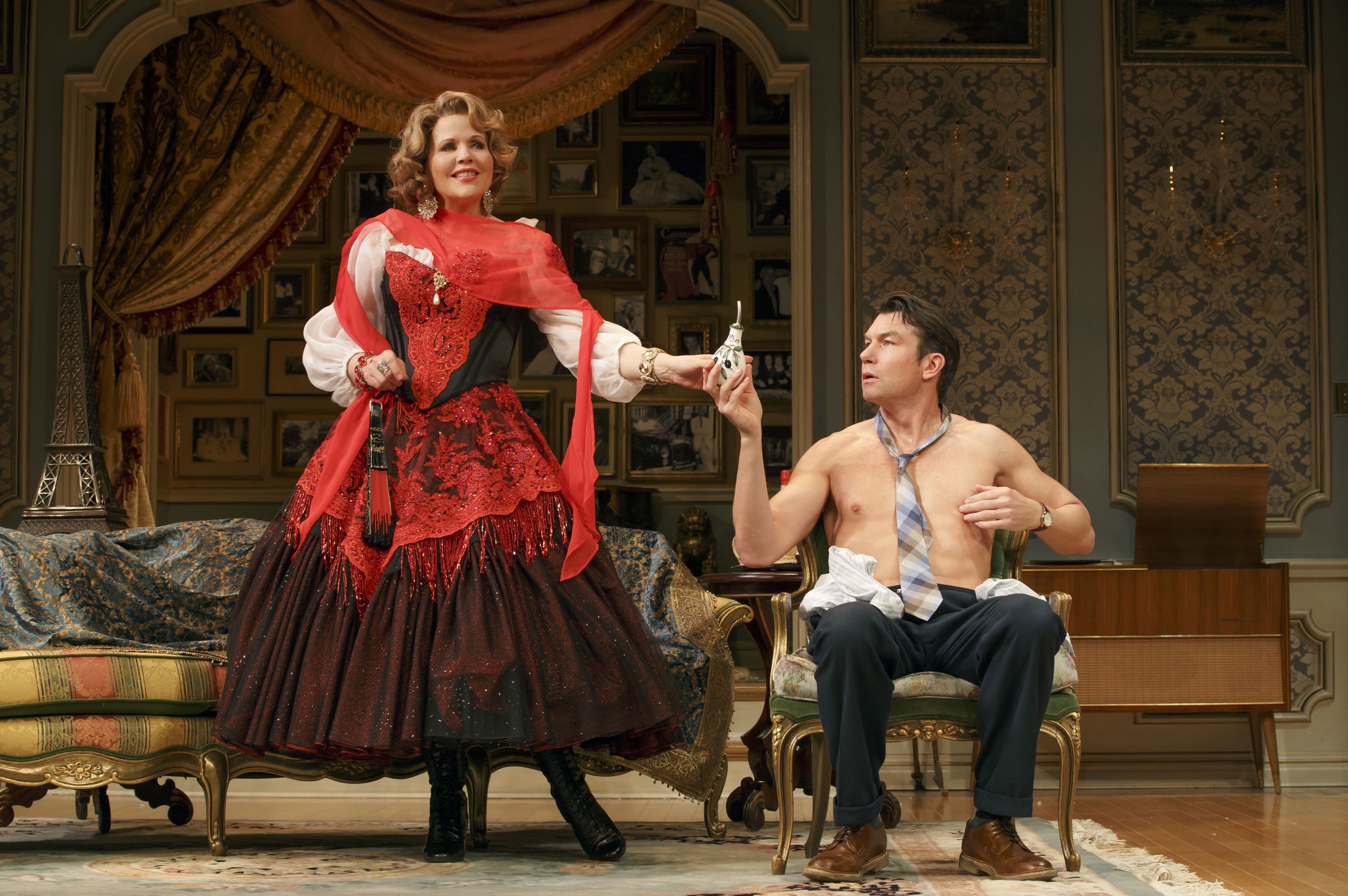
The Wall Street Journal: Renée Fleming Hits All the Right Notes in ‘Living on Love’
Broadway Turns Opera’s Renee Fleming into Comedic Diva
Opera star on comedic timing and inside jokes in her Broadway debut
by Pia Catton, The Wall Street Journal
When the international opera star Renée Fleming was preparing for her Broadway debut in the play “Living on Love,” she worried about delivering the same material night after night for four months.
But a fellow actor said help would come from the seventh cast member: the audience.
“He said the audience will keep it fresh and fun,” said Ms. Fleming.
Given the laughter filling the Longacre Theatre nightly, it was good advice for a performer more accustomed to following a conductor than timing a punch line.
“It’s the first time she is in charge of her own tempo,” said director Kathleen Marshall. “She is surfing the waves of laughter.”
“Living on Love,” which opens on Monday, centers on a talented classical-music couple—she’s an opera singer, he’s a conductor—who are fighting the clock on their careers and their marriage. They try to make each other jealous by cavorting with the young ghostwriters of their respective memoirs and wind up learning about love from their household staff.
With a story rooted in relationships, the jokes send up age, vanity and libidos. But it is the opera jokes that are getting the big laughs—so much so that even the doorbell in the couple’s apartment is a hit.
Its short chime plays a few notes from an aria in “Madama Butterfly” (“Un bel di”), and savvy opera fans don’t hold back.
“I can tell how many operaphiles are in the audience by the laughs at the doorbell,” said writer Joe DiPietro.
In writing the play, which is a top-to-bottom rewrite of Garson Kanin’s 1985 “Peccadillo,” Mr. DiPietro knew the show needed to be layered “to go beyond opera fans,” he said.
So in a scene where Ms. Fleming’s character Raquel decides to woo the young ghostwriter (played by Jerry O’Connell), she enters wearing an outlandish costume that is “inappropriate on every level,” according to Ms. Marshall.
The sequined, ruffled dress is silly for a living-room seduction, but there’s an extra joke for opera fans. Raquel has said she would reprise her portrayal of Mimi, a character in Puccini’s “La Bohème,” but the costume is clearly from Bizet’s “Carmen.”
And for the experts, there’s an inside joke: Raquel, like Ms. Fleming, is a soprano and wouldn’t typically sing Carmen, a role for a mezzo-soprano, a singer in a slightly lower range.
In another scene, a direct joke about descending the vocal range has given the show one of its biggest laughs ever since it played first at the Williamstown Theatre Festival, its creators say.
“Joe asked me in the summer, ‘What’s the worst thing that could happen to you?’ ” said Ms. Fleming, who responded with a joke. “I said, ‘I’d become a mezzo.’ ”
He worked it into the script and, combined with Ms. Fleming’s delivery, no musical knowledge is needed to glean the meaning. “Every night, no matter what, they all laugh at that joke,” said Mr. DiPietro.
In real life, Ms. Fleming is close friends with mezzo-sopranos, and at least one will soon be in the audience. “When Susan Graham comes, I hope she takes it in the spirit in which it was intended,” said Ms. Fleming. “It just seems to work.”
Ms. Graham, who is planning to attend opening night, said she will be ready: “I’ll be sure to give her grief about that.”
Professional rivalries do pop up in the play, as both seasoned performers are bedeviled by up-and-comers: Leonard Bernstein and Maria Callas. “I wanted to show the rage against middle age,” said Mr. DiPietro.
And even opera fans themselves are in for a dig when the play’s young female ghostwriter (played by Anna Chlumsky) shares her experience of seeing her first opera.
“I was sitting among a bunch of opera experts,” she says, “Turns out, everyone in an opera audience is an expert!”